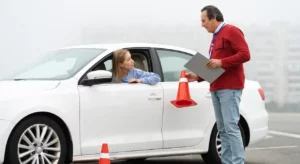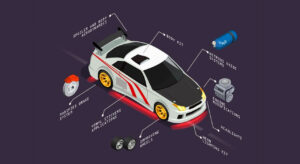Truck drivers in commercial transportation face legal battles post-accidents, defending against false claims amid congested highways and heightened regulatory scrutiny. Truckers must equip themselves with knowledge and proactive strategies to safeguard their reputation, livelihood, and legal standing. The increasing complexity of these challenges necessitates a comprehensive approach to navigating the intricate legal landscape surrounding trucking accidents.
Navigating the aftermath of an accident involves more than just physical damage control. False claims, whether fabricated or exaggerated, pose significant threats to truck drivers’ professional integrity and financial stability. Given this, grasping the legal terrain and taking practical measures to mitigate risks and counter baseless accusations becomes essential.
In this article, we aim to furnish you with a guide outlining practical post-accident steps and strategies to combat false claims.
Understanding the Legal Landscape
After a trucking accident, navigating the legal landscape requires comprehensively understanding relevant statutes, regulations, and case precedents. The legal framework governing commercial transportation in the United States is intricate, encompassing federal regulations, state laws, and evolving judicial interpretations. Truckers must familiarize themselves with key concepts such as negligence, liability, and the burden of proof to effectively defend against false claims.
Suggestion: 6 Easy Steps To Buying A Brand-New Car (Experts Guide)
Also, truckers should be aware of the role of insurance companies, legal representatives, and law enforcement agencies in shaping the post-accident narrative. Accident reconstruction specialists and expert witnesses can shape legal outcomes, highlighting the need for strategic engagement and proactive defense tactics.
Finance Monthly reported that the average cost of a commercial truck accident involving an injured person is $148,279. In cases of fatalities, the cost can escalate significantly, reaching over $7 million. This staggering financial burden underscores the critical importance of effective legal defense strategies for truckers facing false claims after accidents.
Practical Steps for Defense
After a trucking accident, practical defense steps include promptly documenting the incident with photographs, witness statements, and comprehensive maintenance records. Also, seeking legal counsel early can help navigate the complexities of insurance claims and legal proceedings effectively. Proactive communication with insurers and law enforcement, along with adherence to regulatory protocols, can bolster defense against false claims.
Documentation and Evidence Collection
Effective documentation and evidence collection are cornerstone elements in defending against false claims after trucking accidents. Truckers should promptly document the scene, capturing photographs of vehicle damage, road conditions, and any relevant signage. Gathering witness statements and obtaining police reports can provide critical corroborating evidence.
According to Justia, photos following a car accident can reveal debris, skid marks, and road conditions. They may also capture traffic control devices and perspectives from each driver. Also, photos can document property damage and any resulting bodily injuries. Documentation and evidence collection aid in clearing truckers of false claims and enhancing safety standards in the transportation industry.
Also Check: Top 7 Things To Keep In Mind When Buying An Electric Vehicle
Meticulous maintenance records, including inspection logs and service receipts, support safety regulation compliance and counter negligence claims. Digital tools like dashcams and electronic logging devices provide real-time data for accurate event reconstruction. These technologies are invaluable in strengthening the defense against false claims.
Cooperation with Authorities and Employers
Cooperation with both authorities and employers is essential for truckers navigating the aftermath of accidents. Promptly reporting incidents to law enforcement and complying with their investigations demonstrates transparency and a commitment to upholding safety standards.
Truckers must actively communicate with employers for precise incident reporting and protocol adherence. Employers offer critical support and guidance during claims, facilitating legal aid and insurance access. Collaborative engagement between truckers and employers enhances overall accident response efficiency.
Legal Representation
Navigating the legal intricacies of false claims can be complex and emotionally charged. While understanding the landscape and gathering evidence are crucial initial steps, seeking professional legal guidance becomes paramount when facing serious accusations.
Remember, you are not expected to face this challenge alone. Partnering with an experienced truck accident lawyer equips you with the expertise and resources needed to build a robust defense.
Victims of truck accident cases often seek the expertise of truck accident lawyers to navigate the legal complexities and ensure their rights are protected. These attorneys possess in-depth knowledge of trucking regulations and industry standards, providing invaluable guidance and representation throughout the legal process. Their expertise helps the victims to navigate complex legal proceedings and pursue rightful compensation for damages incurred due to the accident.
In response, trucking companies must have a solid defense plan in place to counter these legal challenges effectively. This includes having experienced legal counsel who understands the intricacies of trucking regulations and can develop robust defense strategies to mitigate liability.
Frantz Law Group asserts that not all accidents result from driver behavior every time. Truck maintenance negligence can also lead to major collisions, requiring expert evaluation and investigation. Also, load-related truck accidents occur due to improper cargo loading or exceeding weight limits, endangering road safety. Seeking legal representation is crucial due to the complexity involving multiple responsible parties.
Popular Post: 13 Useful Tips To Save Money When Buying A Used Car
Truckers can protect their interests and minimize the impact of truck accident claims on their operations and reputation by proactively addressing potential legal issues. Having a strong defense plan is essential for achieving this goal.
Communicating Effectively
Communicating effectively is paramount for truckers navigating the aftermath of accidents. Clear and concise communication with law enforcement, insurance providers, legal representatives, and employers helps ensure that vital information is accurately conveyed and understood. Timely updates and transparent dialogue foster trust, streamline processes, and strengthen the overall defense against false claims.
Internal Communication with Employers and Insurance Providers
While navigating the immediate aftermath of an accident, remember that you’re not alone. Your employer and insurance provider are valuable allies in your defense against false claims.
To ensure effective internal communication after an accident, follow steps like promptly notifying your employer and insurance provider to facilitate timely assistance. Provide factual and concise details, refraining from speculation or admitting fault initially. Cooperate fully with internal investigations, sharing relevant information truthfully and providing requested documentation. Maintain transparency throughout the process by keeping stakeholders informed of developments and legal advice received.
External Communication with Other Parties Involved
The Weekly Driver notes that trucking safety involves various stakeholders: truck drivers, truck-owning companies, goods suppliers, police, government, and safety advocates. Each group perceives trucking safety differently and prioritizes different aspects of safety regulation and enforcement. These diverse perspectives contribute to a complex landscape of safety considerations in the trucking industry.
External communication with other parties involved in trucking accidents is pivotal in shaping the narrative and resolving disputes effectively. Truckers must interact courteously with different parties, obtaining contact information and statements. These details corroborate their account of events and support their case effectively.
Also, establishing clear lines of communication with law enforcement officials and emergency responders fosters cooperation and expedites the investigation process. Accurate and timely information to external stakeholders fosters understanding of incidents and reduces risks of misinformation or misinterpretation.
Protecting Personal Well-Being
Truckers navigating legal proceedings and insurance negotiations post-trucking accidents must prioritize personal well-being. Coping with the emotional toll, managing stress, and seeking support from loved ones and mental health professionals are essential for resilience. These steps are crucial for maintaining mental and emotional health during challenging times.
Also, healthy lifestyle practices, including sufficient rest, nutrition, and exercise, enhance truckers’ physical and mental well-being. These practices enable them to navigate post-accident litigation with clarity and composure.
Safeguarding Professional Integrity and Well-Being
In the aftermath of trucking accidents, the journey toward defending against false claims demands a multifaceted approach that transcends mere legal maneuvers. Truckers can fortify their defenses, refute false accusations, and protect their livelihood by embracing the practical steps outlined in this guide.
Through proactive measures, they can emerge from the legal quagmire with their reputation intact and their future secure.







